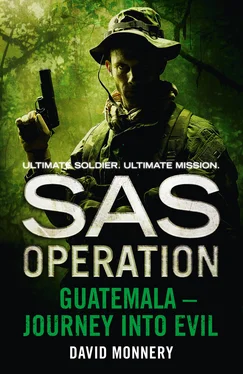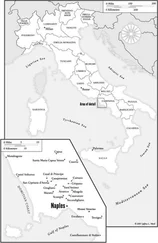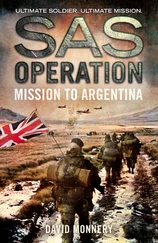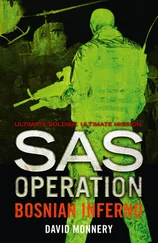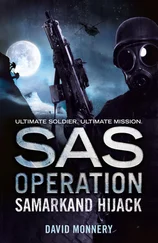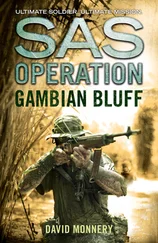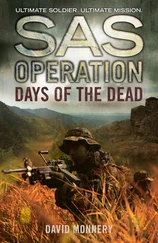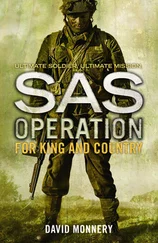Still, no matter how much he might doubt their eventual triumph, he never doubted the need to continue with their struggle. What, after all, was the alternative? To accept the way things were? The poem in Tomás’s pocket had the words for that: ‘… it seems to me that it cannot be, that in this way, we are going nowhere. To survive so has no glory .’
It had been the Old Man who had introduced him to the poetry of Pablo Neruda, a few months after their first meeting in the Mexican refugee camp. By then they had become firm friends – or perhaps more like father and son – but at the beginning Tomás had found it hard to take the older man seriously. His stories had seemed so outlandish, so much like comic-book adventures, that Tomás had taken him for the camp storyteller, more of an entertainer than a fighter.
In one story the Old Man had been taking some explosives to the guerrillas in the mountains, when he was stopped at an army roadblock. The soldiers were in a good mood that day, and only gave him a few bruises and burns before telling him he could continue on his way for no more than the price of his sack of beans. Unfortunately this was where he had hidden the explosives, so for an hour or more the Old Man pleaded and whined for the sack’s return. Eventually the lieutenant in charge of the roadblock grew so sick of this incessant lament that he hurled the bag at the Old Man and told him to get lost. His one great achievement in life, the storyteller told his listeners, was not to recoil at the prospect of an explosion as the sack landed at his feet.
And then there was his favourite escape story. He had been staying with comrades in Guatemala City, and alone in the house when the sound of vehicles approaching at high speed had alerted him. He had walked out into the front yard, picked up a broom and started sweeping, just as the lorries came hurtling down the street. They had screeched to a halt and disgorged running soldiers, all of whom raced straight past the Old Man into the house and started breaking furniture. The lieutenant in charge, who had been sent to arrest a notorious guerrilla leader, told him: ‘Get the fuck out of here, old man!’ He had accordingly shuffled off down the street.
Both these stories, Tomás had later found out, were true in every detail. The man he had taken for the camp storyteller was probably the most successful guerrilla leader in the history of Guatemala’s forty-year civil war. And if anyone could ‘get them on the run for a few weeks’, then it was him.
Barney Davies dropped Jean off at the hospital where she worked, and reached his office before eight, feeling torn between post-coital bliss and pre-mission anxiety. The smile which bubbled up from the one kept fading into the frown caused by the other.
The briefings on the current situation in Guatemala, which had already been faxed from Whitehall, didn’t do much for the smile. There was a lot of talk about that country’s return to civilian democracy, a few pious generalities about increased respect for human rights, and a lot of waffle about the importance of maintaining stability throughout Central America. According to the Foreign Office mandarins, the existence of a Mayan Indian rebellion in the Mexican state of Chiapas made it all the more imperative that the alleged progress towards an acceptable peace in Guatemala be sustained.
Reading between the lines, Davies was not convinced. After finishing the report he stared morosely out of the window for several minutes, and then ordered a second cup of tea and his first rock cake of the day.
One way of reducing the risks involved in sending Razor into the lion’s den, he had decided, was to send him in with company. The two men had got to know each other during the Bosnian business, and the mere fact that Razor had known that Chris Martinson was in Guatemala suggested at least a minimal level of continuing contact.
What the Guatemalans would think of it, Davies had no idea. Nor did he much care.
The tea arrived, together with a surprisingly friable rock cake.
The seventy-mile drive from Birmingham, most of it on motorways, took Razor about as many minutes. Driving was something he had always done well, and usually faster than this. But as Hajrija had tactfully pointed out, if all the other drivers had his judgement and reflexes then he could get away with driving like a lunatic. Until then…
He was getting older in more ways than one, Razor thought. Ten, fifteen years earlier, and the prospect of a mission like this would have had his body churning out adrenalin by the pint. His heart would have been leaping at the thought of getting away from Hereford and into action, away from routine and into the unknown. One voice in his brain was still singing this song, but only one, and it sounded more like an echo of his youth than a part of the man he now was. Other voices were dolefully reminding him that these overseas outings only ever looked good in prospect and retrospect, and were rarely anything other than terrifying at the time. This particular mission, so far as he could tell, looked about as inviting as a fortnight in Mogadishu. And on top of everything else he would be away from Hajrija for longer than he cared to think about.
By the time he reached Stirling Lines Razor was having trouble keeping in contact with the adventurer within.
Barney Davies greeted him with a wide smile and ordered cups of tea on the intercom. Razor glanced at the photograph frame on the CO’s desk, half expecting to find a new face inside it, but it still contained the familiar picture of his children. In the dim distant past another photograph had featured a wife.
‘What exactly do they want me to do?’ Razor asked, once the tea’s arrival had signalled the start of business.
‘As far as I know, simply identify the man who calls himself “El Espíritu”, or “The Ghost”.’ Presumably he’ll be in custody by then, though how they intend to catch him without knowing what he looks like seems a moot point.’
‘And then?’ Razor asked.
‘You come home.’
Razor grunted. ‘So we have no guarantee that…’ He paused. ‘Well, that they don’t just take him out and have him shot on my say-so.’
‘I wouldn’t have thought they’d want that sort of publicity,’ Davies said carefully.
Razor looked up, feeling the weight of doubt suddenly bearing down on him. ‘Which might just mean that they’ll wait until I’m on the plane home.’
Davies shrugged. ‘Maybe. The US State Department told the Foreign Office that if the Guatemalan Army had a hundred suspects they would probably shoot the lot, just to make sure of getting the right man.’
‘Bastards,’ Razor murmured, leaving Davies unsure whether he meant the State Department, Foreign Office or Guatemalan Army. Probably all three, he decided.
‘Look,’ the CO said, deciding to lay some cards on the table. ‘I don’t like this any more than you do. The Guatemalans are leaning on the Yanks, and they’re leaning on us, and it’s you who’ll pick up the tab…’
‘Come back, Docherty, all is forgiven,’ Razor muttered.
Davies uttered a silent prayer of thanks that Jamie Docherty was now living in Chile, and far removed from this mess. ‘It seems to me,’ he said, ‘that there’s two ways we can go with this. Either you can refuse outright to go…’ He looked Razor straight in the eye. ‘And if you do I’ll back you all the way.’
‘Thanks, boss, but…’
‘Or you can go out there and play it by ear. When it comes to the crunch you’ll have to decide for yourself whether you want to identify this man or not. By then you should have a much better idea of who and what you’re dealing with. On both sides of the fence.’
Читать дальше
